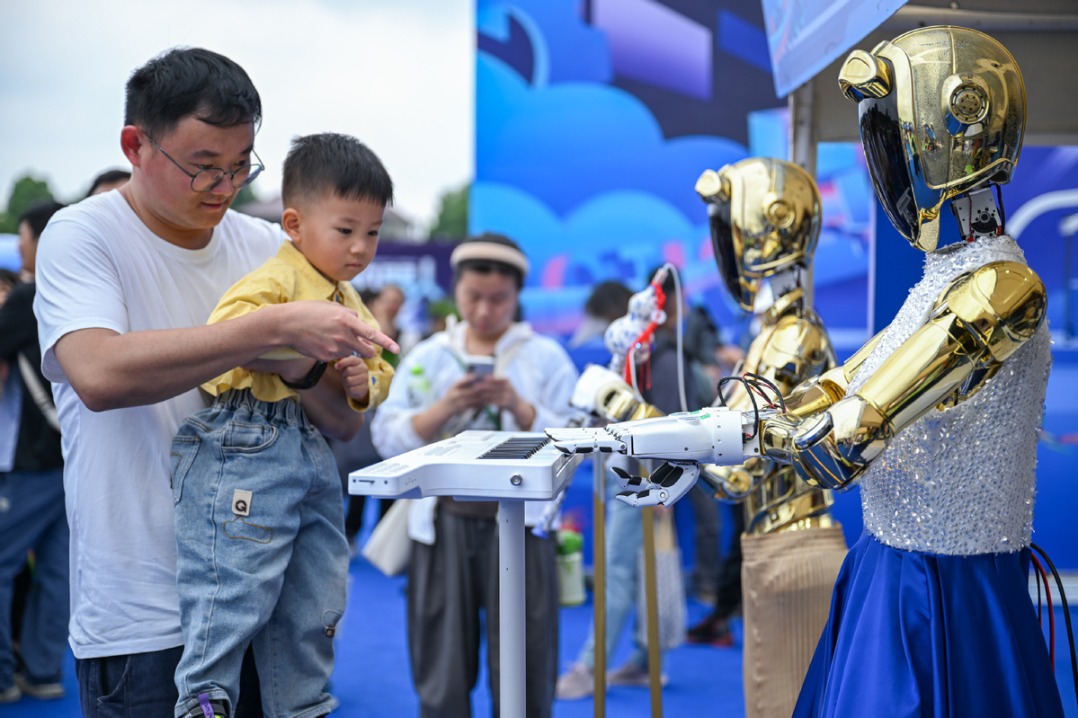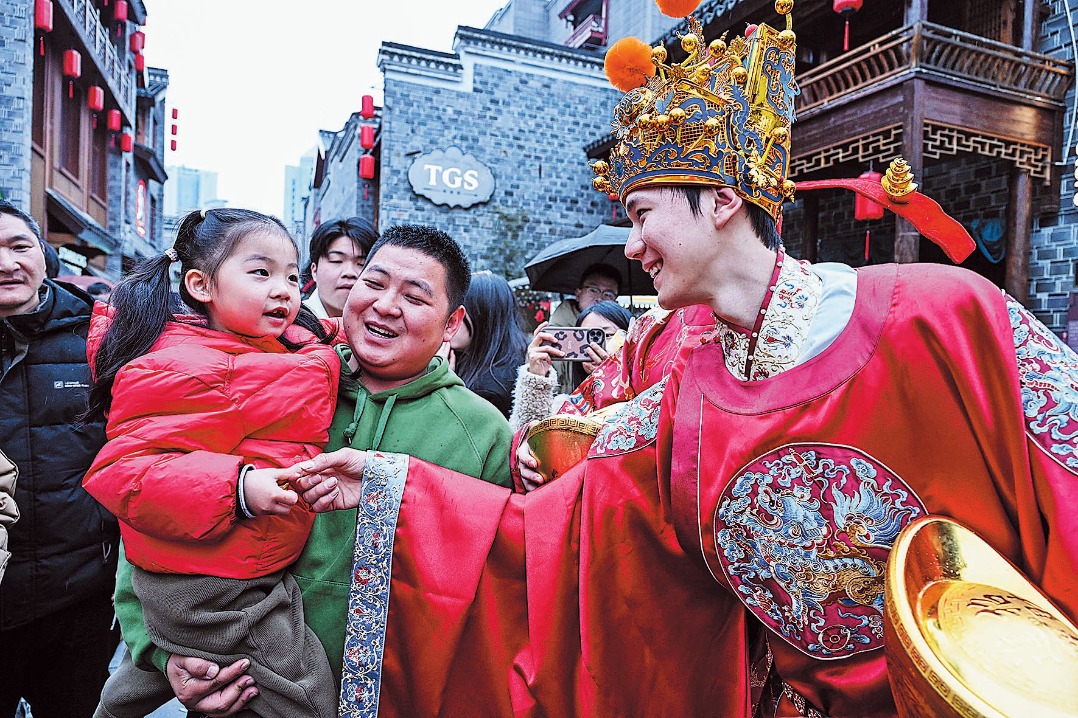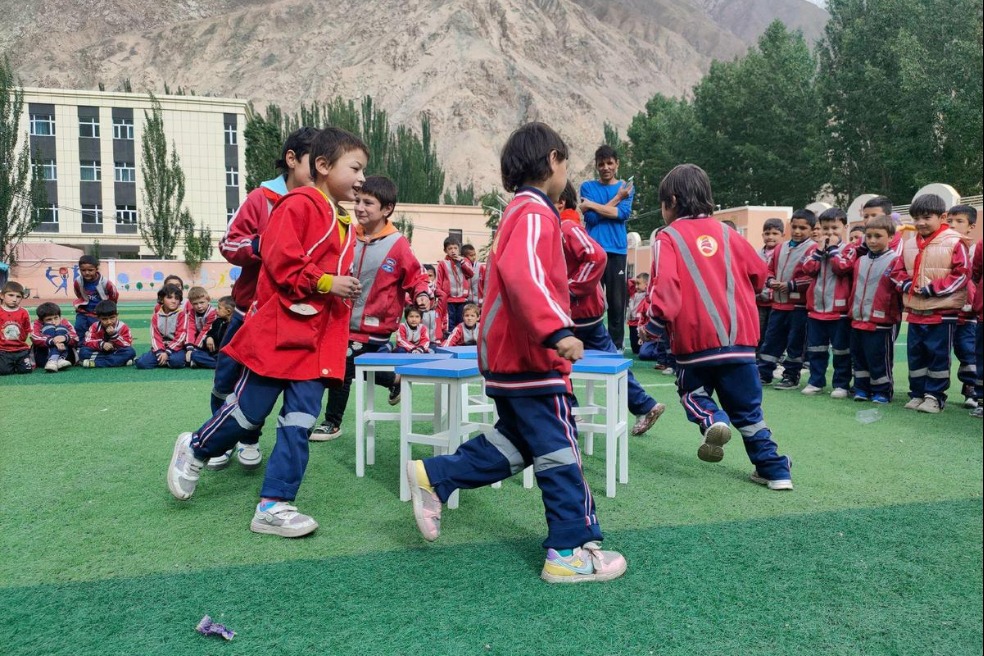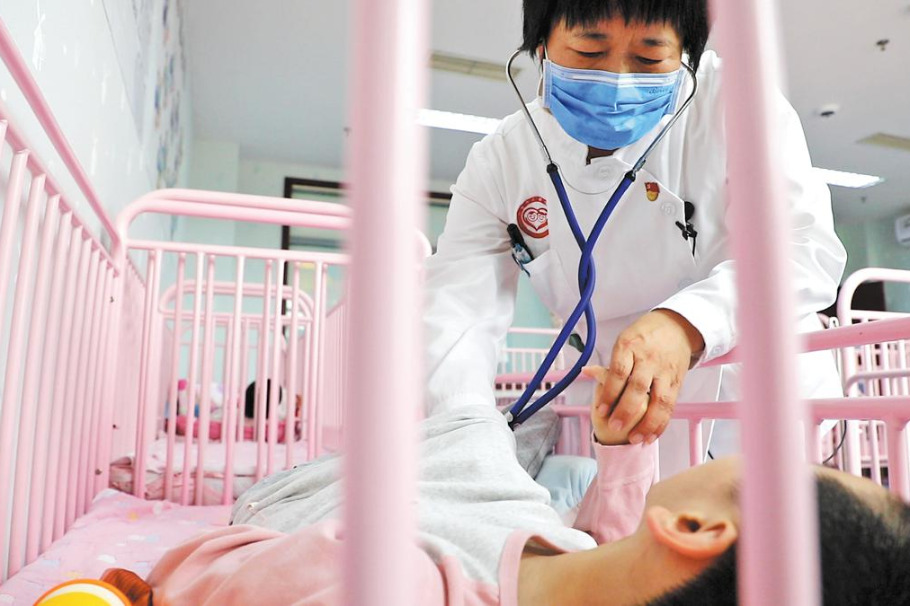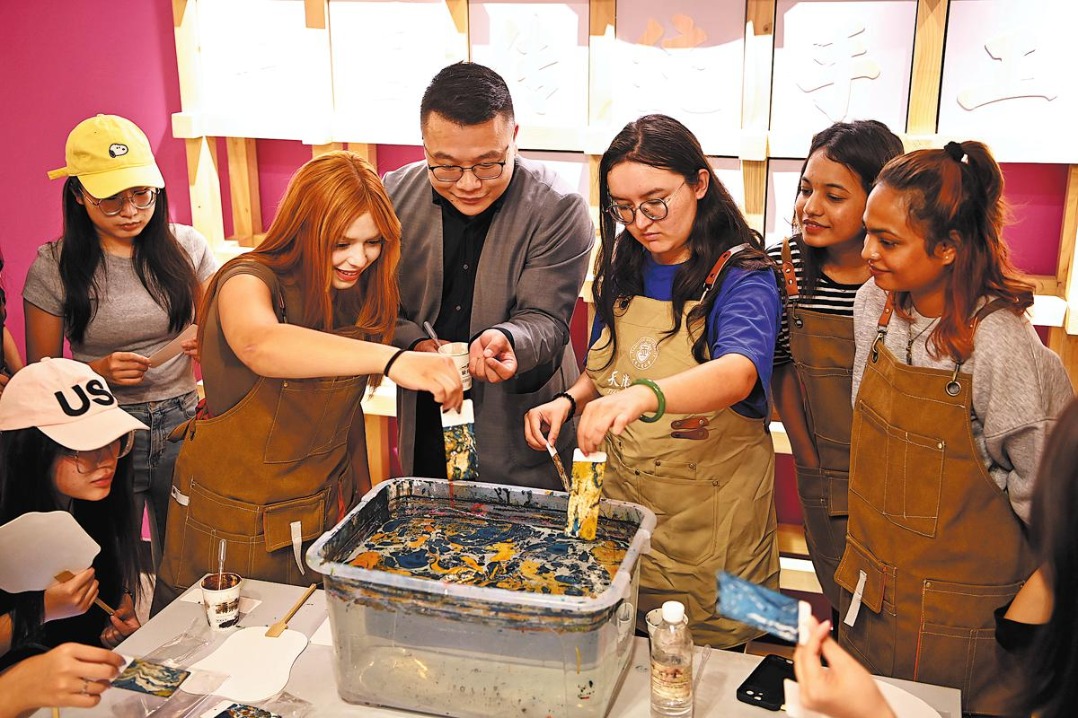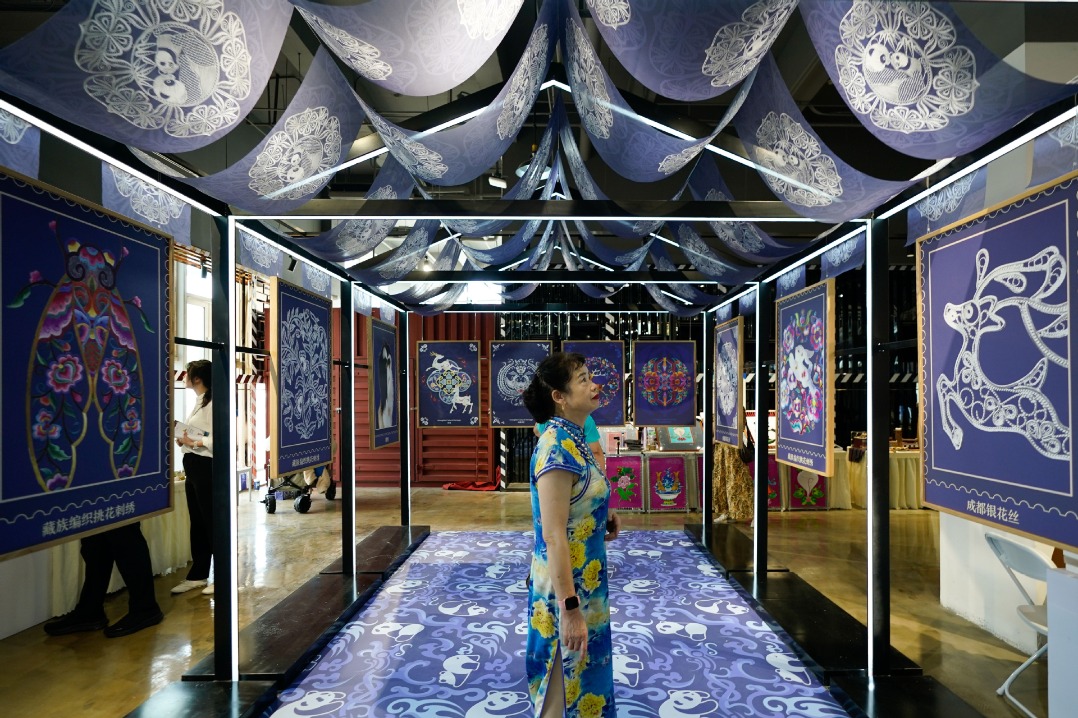Director devotes life to being 'mom' to orphans

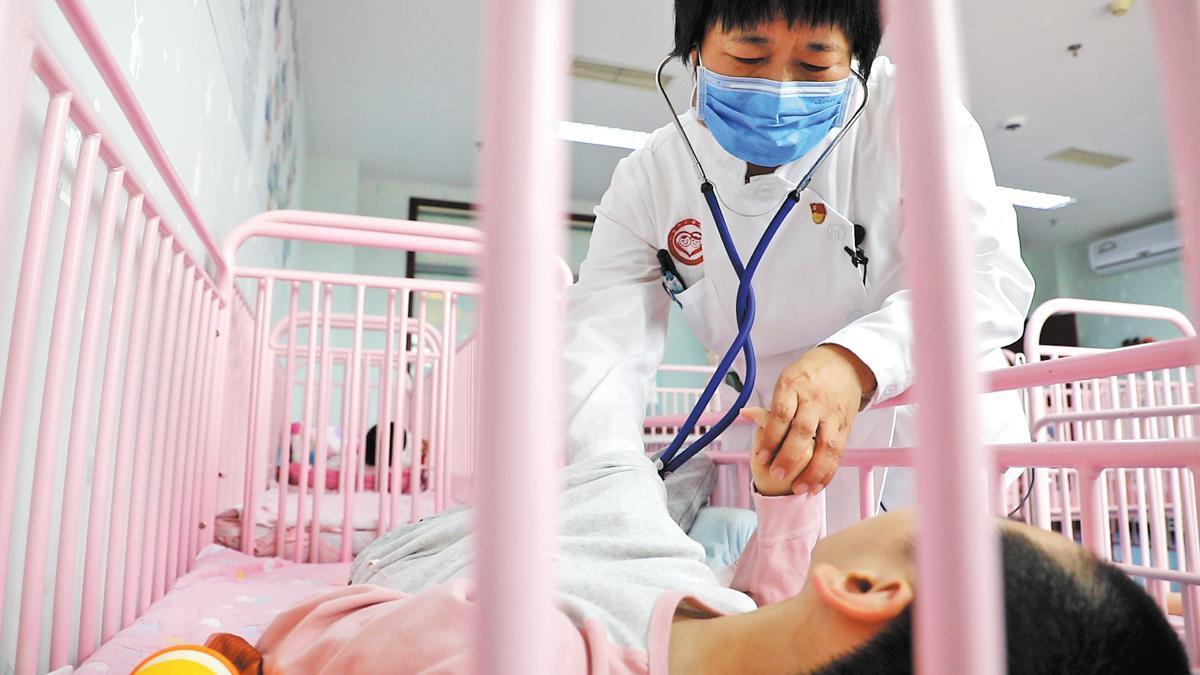
For 32 years, Huang Huiqing has devoted herself to researching rare diseases and caring for abandoned children with disabilities, helping them become self-reliant adults and pursue their dreams.
The 52-year-old director of the medical department at the Beijing Children's Welfare Institute is fondly called "mom" by the orphans and disabled children she cares for.
"I felt bashful when I was first called 'mom' by the kids. It was 1993, and I was only 20, just graduated from medical school in Beijing," she said. "But I gradually got used to the moniker, which I think represents the children's emotional reliance and trust in me. Being a mother to them means I, too, have a great responsibility and duty on my shoulders."
Huang's career began with challenges. Many of the abandoned children had severe disabilities or diseases such as cerebral palsy — a movement disorder that appears in early childhood and is caused by abnormal brain development or damage.
"It was a big challenge for me, and I was at a loss at the outset. What I had learned at school and during my hospital internship was only how to handle common diseases such as diarrhea and fever in otherwise able children," she said.
"I told myself I can't give up. I grasped every single minute to add to my medical knowledge at work and off duty. It requires not only enthusiasm and patience to nurse the children at the institute, but also sound medical knowledge. I spent my initial 12 years here improving my medical learning and trying to gain knowledge from other doctors at top hospitals on the treatment of disabled children."
Recalling her three decades of work at the institute, Huang said she has cared for more than 120 children with rare diseases such as Kabuki syndrome, which is marked by a distinctive facial appearance, and the inherited genetic disorder phenylketonuria.
Children with the latter disorder must follow a strict diet as part of their treatment, or they risk intellectual disability, seizures, behavioral problems and mental disorders. "For the diagnosis of phenylketonuria, which occurs due to a build-up of an amino acid called phenylalanine, I had to rely on our clinical experience due to our insufficient laboratory techniques," Huang explained.
"Around 2008, I contacted Peking University First Hospital and got 51 of our children suspected of having phenylketonuria diagnosed. Thirty-two of them were confirmed to have the disease."
Huang said the diagnosed children cannot eat regular meat, eggs or milk, so she took the lead in nurturing them with a strict diet. She recalled that with careful feeding and nursing, 12 of them grew up without any further disabilities and were adopted by families.
"We've realized that many children with rare diseases at our institute can experience better treatment results if we identify the syndrome and confirm the diagnosis as soon as possible," she said.
"It is heartening and gratifying to see children with phenylketonuria learn to sit, stand and walk and grow up healthily before the disease damages their brain. All children are born equal and should be carefully nurtured. We may not be able to change their disabilities, but we can definitely bring them warmth and improve their quality of life," she said.
Huang said the medical department is responsible for taking in orphans and disabled children, and the institute's staff members diligently ensure the children get health checkups. They even name them.
According to the institute, around 300 children live there; more than 85 percent have severe physical, intellectual or mental disabilities.
Founded in 1984, the institute has sheltered more than 1,000 abandoned children at its peak.
However, Huang added, the institute hasn't added any new abandoned children in the last six years.
"Children at our institute are like angels with broken wings. I hope that the efforts of my colleagues and myself can help broaden their opportunities in the future," she said.
"We've seen children with cleft lips and palates show us sweet smiles after surgery. Similarly, it's wonderful to see children with a speech delay or language impairment utter 'mom' after training. Many children grow up and become self-reliant, and even manage to work or live by themselves. I think my work is worthwhile."
The institute was listed as a trial unit for a State-level program last year. This will ensure explorative steps to open its resources to children outside the institute who live in hardship due to financial problems, disabilities, abandonment or improper family custody.
"We will use our advantage of rehabilitating disabled children as an opportunity to assist more children living in difficulty. Personally, I will continue to spare no effort to introduce higher-quality medical and rehabilitation resources to the institute. Such children deserve to live in a better environment with professional nursing, medical rehabilitation, education and social services," Huang said.
chengsi@chinadaily.com.cn
- Director devotes life to being 'mom' to orphans
- China rising in rankings of universities
- China's transportation sector leaves international students inspired
- Guangdong launches fast-track lychee distribution system
- Ministry issues reminders ahead of gaokao
- ASEAN-China Youth Hosts Camp wraps up in Guilin


















